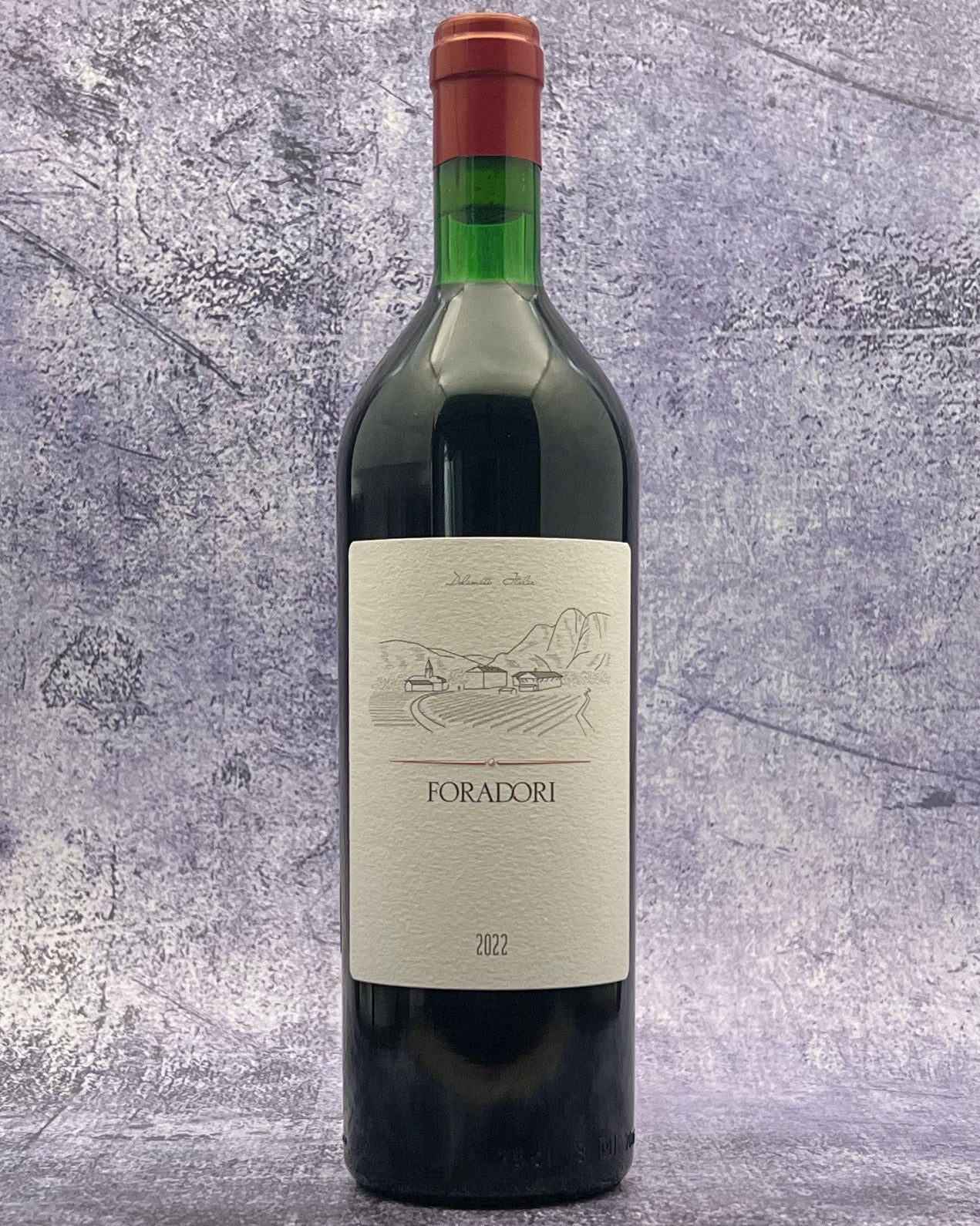From: Campo Rotaliano, Trentino, Alto Adige, Italy
Varietal: Teroldego
Critical Acclaim: The 2022 Teroldego mixes rich dark fruits with earth tones, leather and spice to create a truly inviting bouquet. This is soft-textured and round with juicy acidity and masses of mineral-tinged wild berry fruits that cascade throughout. It finishes wildly fresh yet still long and potent, leaving the mouth watering as hints of wild blueberry slowly fade. The 2022 is completely open for business yet with a balance that will carry it for the next three to five years in the cellar. Vinous
Pairing: This mid-weight Teroldego, rich fruit character, and earthy undertones pair exceptionally well with dishes with a robust flavor profile. Opt for a simple roast pork (check out the recipe below!) or lamb, as the wine's freshness complements the savory richness of the meat. For a vegetarian option, consider a mushroom risotto or a dish with a hearty tomato-based sauce. The wine's spiciness and structure will interplay delightfully with the earthiness of mushrooms or the acidity of tomatoes. Also, continue serving this alongside aged cheeses for a harmonious blend of textures and flavors.
Chinese Roast Pork on Garlic Bread
By Sam Sifton
About. Azienda Agricola Foradori, located in the northern Italian region of Alto Adige, is one of the country's most respected and renowned wineries, with a deep-rooted history in producing indigenous grape varieties, particularly Teroldego. The estate was founded in 1901, but its modern legacy began when Elisabetta Foradori took over in 1984 following her father's passing. At 19 years old, she embarked on a mission to revitalize the family estate, modernize its practices, and elevate its wines, bringing them to international recognition.
Elisabetta is celebrated for her pioneering work with the Teroldego grape, an Indigenous variety that was largely overlooked at the time. She recognized its potential and devoted herself to refining its expression through organic and biodynamic farming, eventually becoming a symbol of this renaissance. Over the years, she has become a prominent voice for biodynamics, leading by example through her commitment to farming with respect for the land, biodiversity, and long-term sustainability.
A significant milestone came in the early 2000s when the Foradori estate officially converted to biodynamic farming. This transition was more than a change in agricultural techniques; it was a philosophical shift toward creating wines deeply connected to their terroir, which expresses the land's natural cycles. Elisabetta's focus on biodiversity, soil health, and minimal intervention in the vineyard and the cellar reflects her dedication to crafting wines with integrity and a sense of place.
The Foradori estate is nestled in the Campo Rotaliano, a small but highly distinctive Trentino area within the broader region of Alto Adige. This area lies at the foothills of the majestic Dolomite Mountains, which provide a stunning backdrop and significantly influence the local climate and terroir. The estate benefits from a alpine-continental environment, where the cool temperatures and the stark diurnal shifts play a crucial role in shaping the character of the wines.
The Campo Rotaliano is a former Noce River riverbed, which has created a unique alluvial plain. The soils here are gravelly, rich in minerals, and well-draining, ideal for grape cultivation. These conditions, particularly the stony, porous soils, encourage profound root growth and vine stress, often leading to wines of higher concentration and complexity. The presence of the Dolomites also acts as a protective barrier, shielding the vineyards from extreme weather conditions while allowing sufficient exposure to sunlight, which is critical for ripening the grapes in this northern wine- growing region.
The influence of the Dolomites extends beyond mere protection; they create a microclimate that ensures cool nights even in the warm summer months, facilitating the slow ripening of grapes and preserving their acidity. This extended growing season is crucial for varieties like Teroldego, allowing the grapes to fully develop their flavor profiles while retaining the freshness and vibrancy that characterize Foradori’s wines. The vineyards' elevation, which sits between 220 to 350 meters above sea level, also contributes to the cool climate, further enhancing the natural acidity and structure of the wines.
The terroir of the Foradori estate is deeply intertwined with its indigenous grape varieties, particularly Teroldego, which thrives in these unique conditions. The cool temperatures and ample sunlight enable the development of bright, focused fruit flavors, while the gravelly soils impart minerality and depth. In addition to Teroldego, the estate also grows other native varieties, such as Nosiola, which benefits from the region’s specific microclimate to express nuanced, mineral-driven flavors. These characteristics are a direct result of the combination of climate, elevation, and soil composition, all of which work harmoniously to create expressive and elegant wines.
In 2012, Elisabetta Foradori passed the reins of the estate to her children, Theo, Myrtha, and Emilio Zierock, who have continued her legacy with the same dedication to biodynamic principles and the production of terroir-driven wines. The family focuses on creating wines with minimal intervention, eschewing chemical additives, and emphasizing natural fermentation. They have also explored amphora aging, which reflects their desire to maintain purity and authenticity in their wines.
The Foradori estate today stands as a beacon of innovation and tradition in Italian winemaking. Its portfolio includes several expressions of Teroldego and distinctive whites like Nosiola and Pinot Grigio. The estate's commitment to organic and biodynamic practices, along with its deep connection to the land and native grape varieties, has earned it a global reputation for quality and authenticity. Elisabetta Foradori's work inspires a new generation of winemakers who seek to honor their local terroir while embracing sustainable practices.

